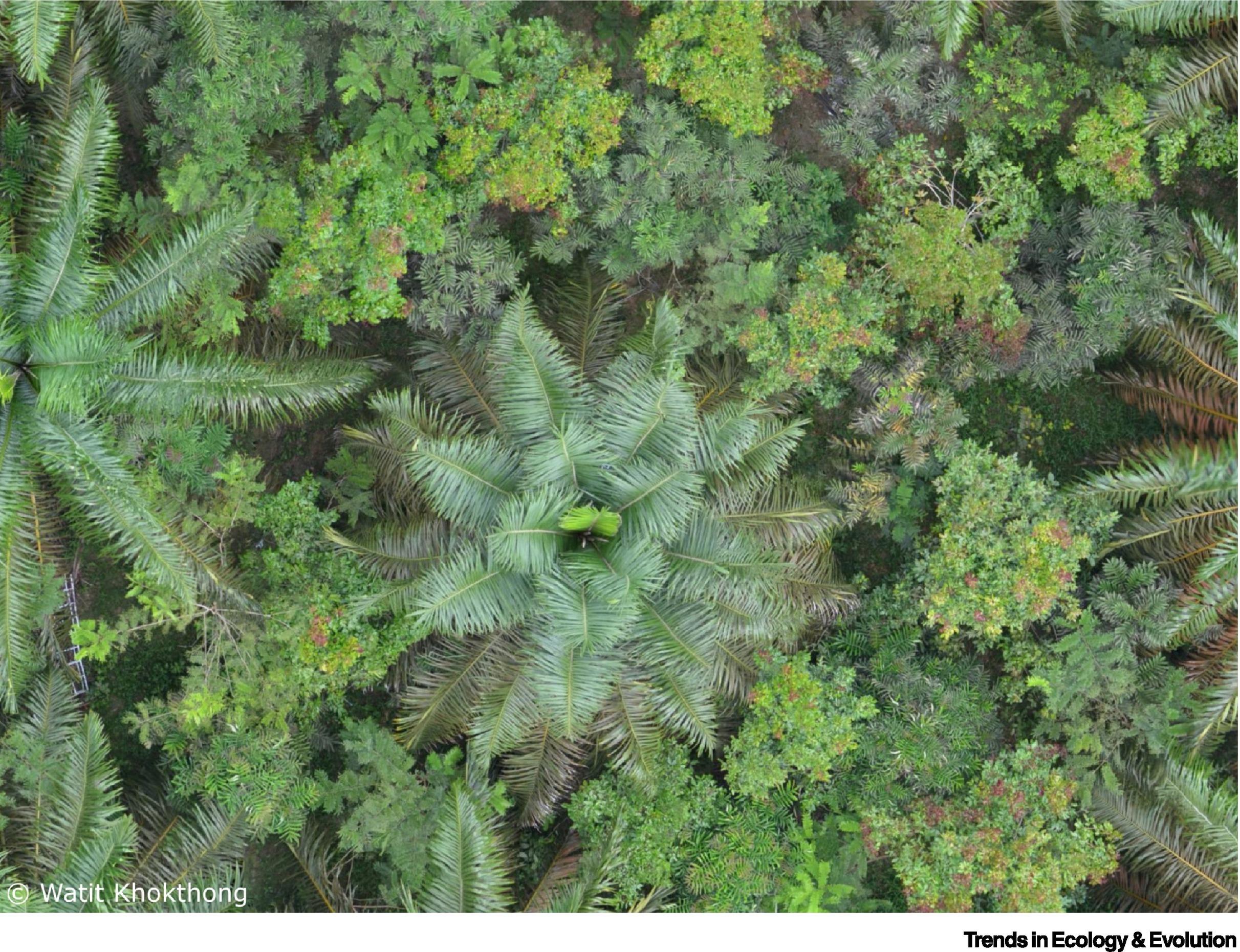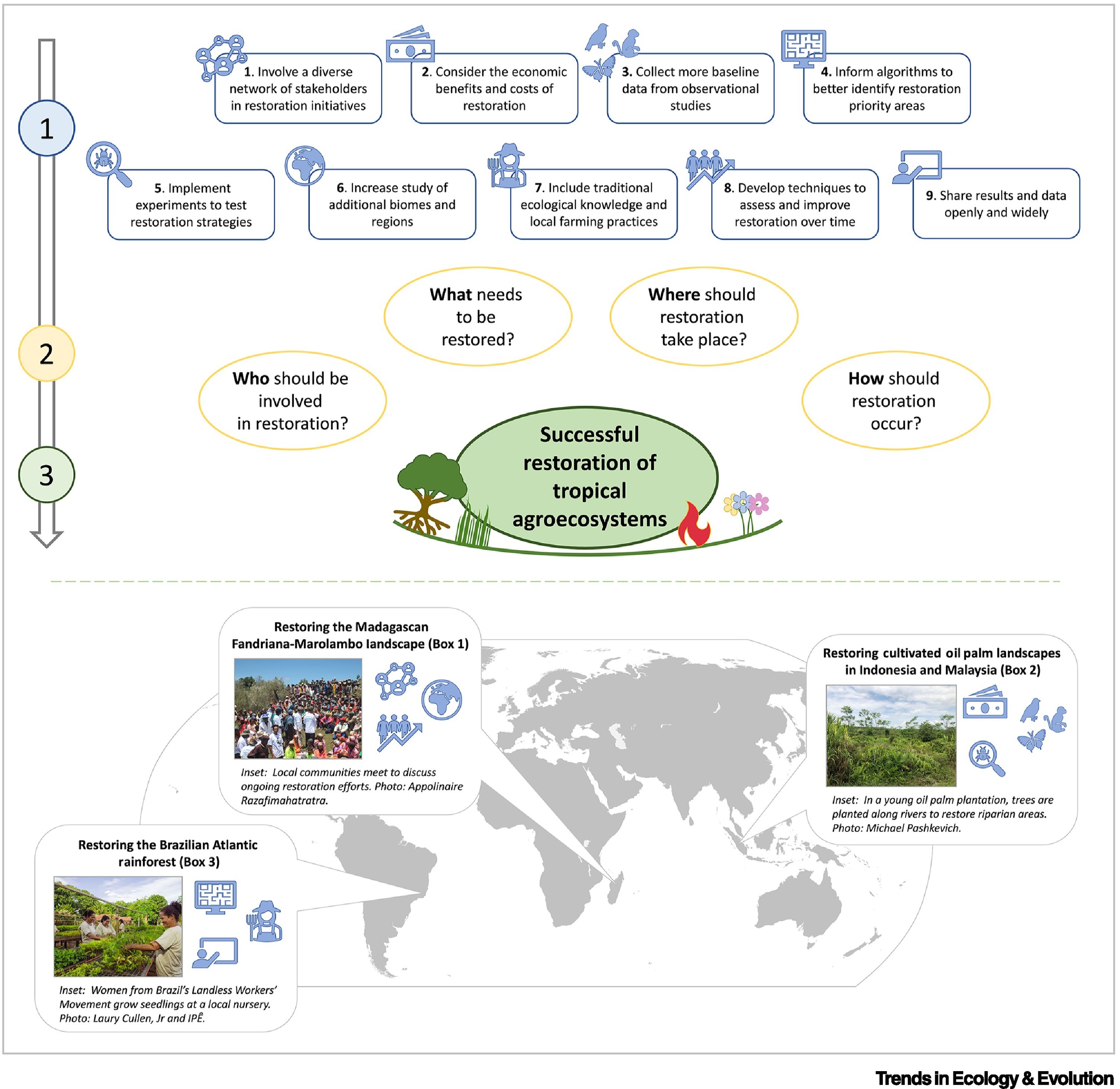
Submitted by A.B. Youngman on Wed, 17/08/2022 - 18:01
Actions to successfully restore tropical agroecosystems are described in a new paper published in Trends in Ecology & Evolution (TREE), written by a team led by Dr Michael Pashkevich, Marshall Sherfield Fellow in the Insect Ecology Group at the Department of Zoology, University of Cambridge.
The authors present nine actions to guide restoration, supported by case studies that demonstrate their successful use.
Tropical agriculture is important for food security and livelihoods, but can also drive ecological degradation. Well-designed restoration can reduce or reverse this whilst also delivering benefits to nature and society, but when poorly-designed, restoration can result in wasted resources, ecological damage, or harm to local communities.
The paper is written from an ecological perspective but takes into consideration social, economic, and political factors that may affect restoration. The featured case studies, drawn from the authors’ own experiences of restoration projects in Madagascar, Indonesia and Malaysia, and Brazil, show how the nine suggested actions can be used on the ground, illustrating how restoring tropical agroecosystems can provide not only environmental benefits, but also substantial socioecological rewards relative to the cost of implementation.
The current UN Decade on Ecosystem Restoration (2021-2030) offers unprecedented attention, research funding, and capacity to support restoration initiatives, aiming to inspire a large-scale, cross-cultural movement for global ecological restoration. The nine actions described in this paper are an important and useful starting point for future work.


